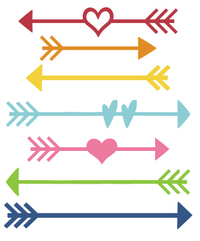In my last blog post, I discussed the importance and benefits of self-compassion. Though I firmly believe this is a vital stepping stone on the path to understanding and having compassion for others, it’s a process that can’t be rushed. While we are cultivating our beautiful practice of self-compassion, how can we meet the inflammatory circumstances with others who challenge us?
Lately, I’ve been practicing metta, or lovingkindness towards those who rock my boat. I don’t deny the initial feelings that arise in response to any given interaction with them. I still rely heavily on the practice of RAIN to be with these turbulent feelings in an authentic, spacious, and kind way. I still depend on the lifejacket of self-compassion to keep me from drowning in my own reactive emotions.
The difference now is that I also try to get in touch with the deeper feelings beneath the surface. For example, when I’m driving and get cut off by another driver, or another driver will not let me into his/her lane when my signal has already been blinking for what feels like an eternity, I first notice the anger/annoyance. I also notice the deeper feelings of fear and need for safety. I create a metta phrase that captures the essence of these deeper feelings.
May I be safe.
May you be safe.
May others around you be safe.
I don’t displace the anger/annoyance, or pretend it doesn’t exist. I just don’t want it to corrode or shrink my heart to a smaller size. Getting in touch with the deeper feelings and creating a metta phrase from them help me to remember that I’m dealing with another being who probably wants the same things that I do. Their actions might say otherwise, but I’m willing to give them the benefit of the doubt!
I have also practiced this with coworkers and family members who might get under my skin. I’ve noticed that underneath the anger/annoyance, there is often a sadness and need for connection. A metta phrase might sound like this:
May I feel loved and accepted just as I am.
May you feel loved and accepted just as you are.
As you are reading this, please notice any physical sensations arising within you. Do you feel warm and light in your heart center, optimistic and inspired in trying this with someone you know? Maybe you feel your gut tightening, contraction in your chest, or a burning sensation in your jaw. If this is the case, please honor your body’s wisdom. Maybe the person who needs your lovingkindness practice most is you. You aren’t ready to turn the attention outward because you are still healing from past hurt.
If you are feeling open to this practice, I recommend starting with someone who is mildly offensive, not the person you haven’t spoken to in years or someone who has hurt you deeply. It might be the postal person who mixed up your mail with your neighbor’s yet again, or the coworker who takes up too much office space, yours included. You are probably in touch with the surface emotion, but what is the deeper one? Is it fear, hurt, or regret? If you have the time, space, and experience, RAIN is a great way to get in touch with the deeper emotion. If not, maybe you have another practice that can help you access the deeper emotion and need.
Whatever you decide to do with this post and practice, may a few arrows of judgment transform into arrows of love. May this practice begin with you.


 RSS Feed
RSS Feed